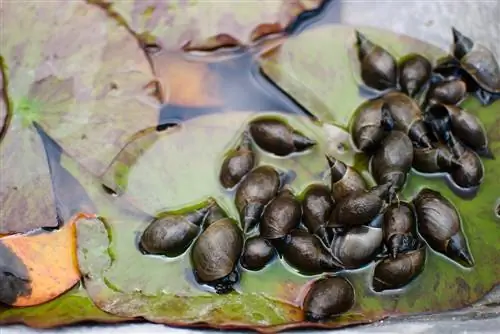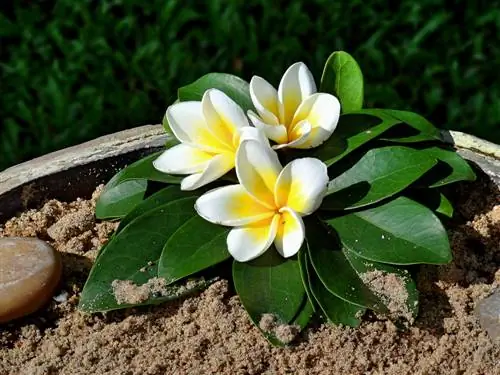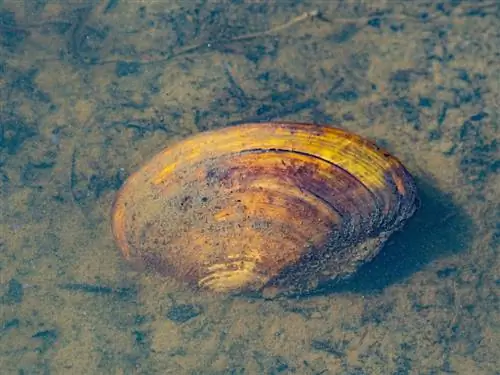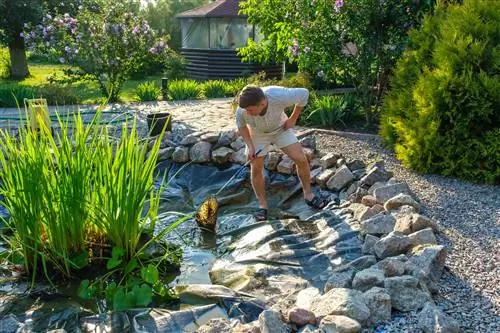- Author admin leonars@hobbygardeners.com.
- Public 2023-12-16 16:46.
- Last modified 2025-01-23 11:22.
When people talk about algae blooms, there is rarely enthusiasm. Because the green “stuff” has multiplied explosively in the garden pond. If it is not stopped quickly, other plants and animals will literally perish. However, the hornwort is a strong opponent, which in turn deprives algae growth of the breeding ground.

How does hornwort help against algae in the pond?
Hornwort is an effective and natural method against algae in the pond. It removes nutrients, such as phosphate, from the algae through rapid growth and binds them in its own growth. Hornwort is easy to care for and can be planted in shaded or sunny areas.
Causes of algal blooms
In a nutshell: The current living conditions for algae are good, too good! They use this immediately and extensively to reproduce extremely quickly. In addition to warmth and plenty of sunshine, an excess supply of phosphate is also responsible for this.
Phosphate is an important element for all plants. That's why it has to be present in the pond. But it is primarily the algae that benefit from a large amount. They can absorb and utilize phosphate more quickly than most pond plants.
Pond plants against algae
However, there are some pond plants that also have a fast growth rate. In this way, they manage to bind phosphate from the water before it can be used in large quantities by algae to reproduce. They can therefore be used specifically as biological algae control agents. By the way, not only when the algae bloom has already occurred, but as a preventive measure. These plants are ideal:
- Pikeweed
- duckweed
- Frogbite
- hornwort
Pike weed against algae is a blooming solution, but a sunny spot at the edge of the pond is necessary. If it is not available, hornwort is happy to step in as an alternative.
Useful Hornwort
In order for the hornwort to slow down the algae's urge to multiply, it has to feel comfortable in the pond itself. It's not difficult because this plant is undemanding.
It is also known that hornwort and waterweed do not get along well. Since waterweed tends to multiply rapidly, the presence of hornwort in addition to algae can also suppress this plant.
How to use hornwort
Hornwort is considered easy to care for and robust. You don't have to worry much about the location because it thrives in both shade and sun. You can plant hornwort up to a depth of 1.5 m. That's why it is also ideal for deep ponds.
Its planting is not a big challenge. Hornwort has no roots and is simply planted at the bottom of the pond.
Tip
The hornwort, often also called hornleaf, can be easily propagated by division if necessary.






